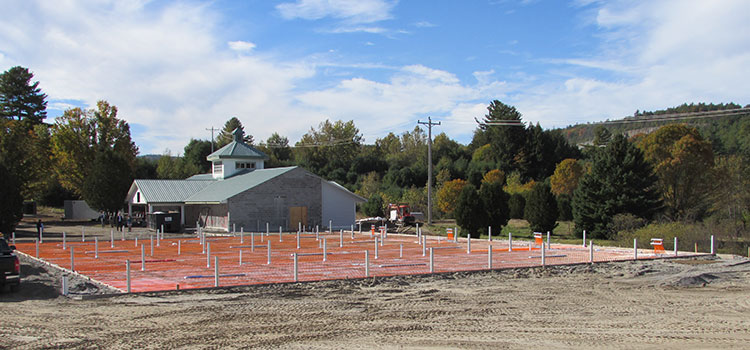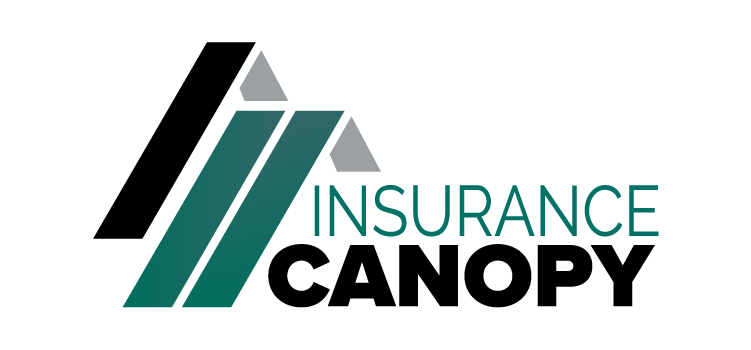Over the next few weeks, an old horse barn will be transformed into one of the first medical marijuana cultivation facilities in New York.
The 8,000-square-foot barn in Chestertown is still being renovated but once complete it will serve as the extraction, curing, processing, separating and lab site for Etain, LLC’s production facility. Alongside the barn, nestled in the foothills of the Adirondack Mountains, is the footprint for what will soon be a 13,000-square-foot greenhouse.
During an open house of the facility, led by Etain COO Hillary Peckham, local government officials and media members were allowed inside the horse barn for the first, and last, time. Soon clones will be brought to the site and it will be locked down, per Department of Health regulations. Presently an 8 foot fence surrounds the perimeter of the site. Additional security measures, such as cameras, motion detectors and guards, will be in place before the first marijuana shipment arrives.
In accordance with state law the plants will be used to extract oil. New York’s Compassionate Care Act forbids smoking as a delivery method, and because of this Etain has narrowed their offerings to four products: capsulated pills, sublingual drops, oral sprays and concentrates for use in vaporization pens. Etain has partnered with Clean Room Extract to create the concentrates using carbon dioxide extraction methods. The law allows for each of the five state-approved companies to have five “brands,” determined by the THC to CBD ratio in the final product.
“Clean Room Extracts [process] gives the highest yield for the amount of extractable oil,” Peckham said during the tour. “Most industry standards are about 14 percent of the usable oil…Clean Room Extracts has a minimum of 35 percent.”
Etain is currently the only New York company using Clean Room Extracts for their oil processing. Clean Room Extracts entered the marijuana extraction sector three years ago, according to Alfonso Liu, a Clean Room Extract representative who attended the event. Prior to getting involved with the marijuana industry they utilized their methods to extract liquids from algae and fungi. The firm also works with companies in New Jersey, Colorado, California and Kentucky.
“The industry standard [for extraction] is getting about 50 to 60 percent,” Liu said. “We have a proprietary method that we can go all the way to 95 percent. So depending on what method we use, we can get 95 percent of the oil.”
No products will be sold directly from the rural Chestertown location. The law allows for each of the five companies granted permission to operate in the state one production site and four dispensary sites. Peckham explained that despite there currently being zero enrollees in the program, their business plan has prepared them to handle a customer base of 500 patients. Their first, and currently only in-progress, dispensary is set for North Pearl Street in Albany – a stretch currently occupied by warehouses, mechanics, breweries and bars. Peckham expects a slow start to the program, hence her focus is on the small-scale grow-op and just one dispensary. During these early stages she expects to have about 20 employees working between both sites. Peckham is hopeful that her other locations will be ready by the end of February.
The security for both the cultivation and dispensary sites are headed by Mike Rego, a former Newport, Rhode Island narcotics detective. Rego helped open Greenleaf Compassionate Care Center in his home state and has worked with other medical marijuana sites with securing their locations.
Rego says that the rural setting for Etain’s cultivation center might make his job a little easier but he is going about securing the site in the same fashion he would any active grow facility. The fact that the plants are useless once used for extraction eases his mind a bit compared to other sites because it makes the site less appealing to thieves. Rego explained that oil is less likely to be “diverted,” or sold illegally. At the cultivation site the products will be stored in an 800 pound safe so, “even if someone were to get past the fence and into the vault, the cops are going to be there in no time and your face is on camera.”
“There is a general interest here that this is a place that is not going to have any problems,” he said. “We want to be a good neighbor.”
Rego said that one of his primary goals is to ensure patient comfort at the sites in his charge.
“My experience has been patient interaction is very important… You want to feel like you’re in a safe and secure place,” he said. “You don’t want to have an armed guard hanging over you. That’s not the environment we want to create.”
Rego’s approach to security seems in line with the “compassionate” namesake of the bill, while the cultivation facility’s tranquil location elicits a peaceful vibe. Although the Department of Health can shut down the program at any time for any reason, Peckham is confident that this is just the beginning for the industry and the Health Department realizes that medical marijuana therapy is long overdue, and much-needed, for patients in the state.
“It’s compassionate care, it’s palliative care and you can make an impact on patients’ lives,” she said.”
Photo Credit: TG Branfalt Jr.
Get daily cannabis business news updates. Subscribe
End



